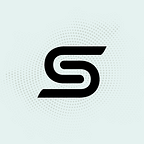Exploring the Dynamic Realm of Blockchain Oracles
Blockchain oracles are pivotal in connecting smart contracts with external data, enabling these contracts to interact with the world beyond the blockchain. Let’s dive into the diverse types of oracles and their unique functions within the blockchain ecosystem.
The Intricacies of Blockchain Oracles
Oracles are not one-size-fits-all solutions. They come in various types, each designed to cater to different needs within blockchain.
- Software Oracles: Bridging Digital Data — Software oracles form the link between blockchain and digital sources, such as APIs and websites, providing up-to-the-minute data like currency exchange rates.
- Hardware Oracles: Connecting Physical Data — These oracles bring real-world data to the blockchain, gathering inputs from sensors and IoT devices for applications that require tangible interactions.
- Human Oracles: Adding Human Insight — These oracles leverage expert knowledge in specific fields, offering a human touch to the validation and transmission of complex information to smart contracts.
Centralized vs Decentralized Oracles
Centralized oracles, controlled by a single entity, offer efficiency but at the cost of potential manipulation and single-point failure risks. On the other hand, decentralized oracles distribute trust among multiple sources, enhancing security and reliability.
The Direction of Data: Inbound and Outbound Oracles
- Inbound Oracles: These bring external data into blockchain, crucial for smart contracts that depend on external information.
- Outbound Oracles: Less common, these send blockchain data to external systems, enabling actions based on blockchain events in the real world.
Cross-Chain and Compute-Enabled Oracles
Cross-chain oracles enhance interoperability by enabling data and asset transfers across different blockchains. Compute-enabled oracles, on the other hand, handle complex off-chain computations, often used in layer-two solutions for extensive data processing.
Real-World Applications
The use of oracles in blockchain extends across various sectors:
- Decentralized Finance (DeFi): Oracles provide critical price feeds and enable automated transactions.
- Insurance: Automating claims processing based on real-world data.
- Non-Fungible Tokens (NFTs): Ensuring the rarity of items through random assignment.
Summary
Blockchain oracles have been transformative, evolving blockchain from an insular system to a dynamic, interactive platform. As we delve deeper into the possibilities of blockchain, oracles continue to play a vital role in bridging the blockchain world with real-world scenarios, opening doors to new innovations across various industries.
Stay connected with the latest in blockchain oracles! Follow us on Switchboard Twitter, join our Discord community, and delve into our Docs
Watch out for exciting developments from Switchboard!
